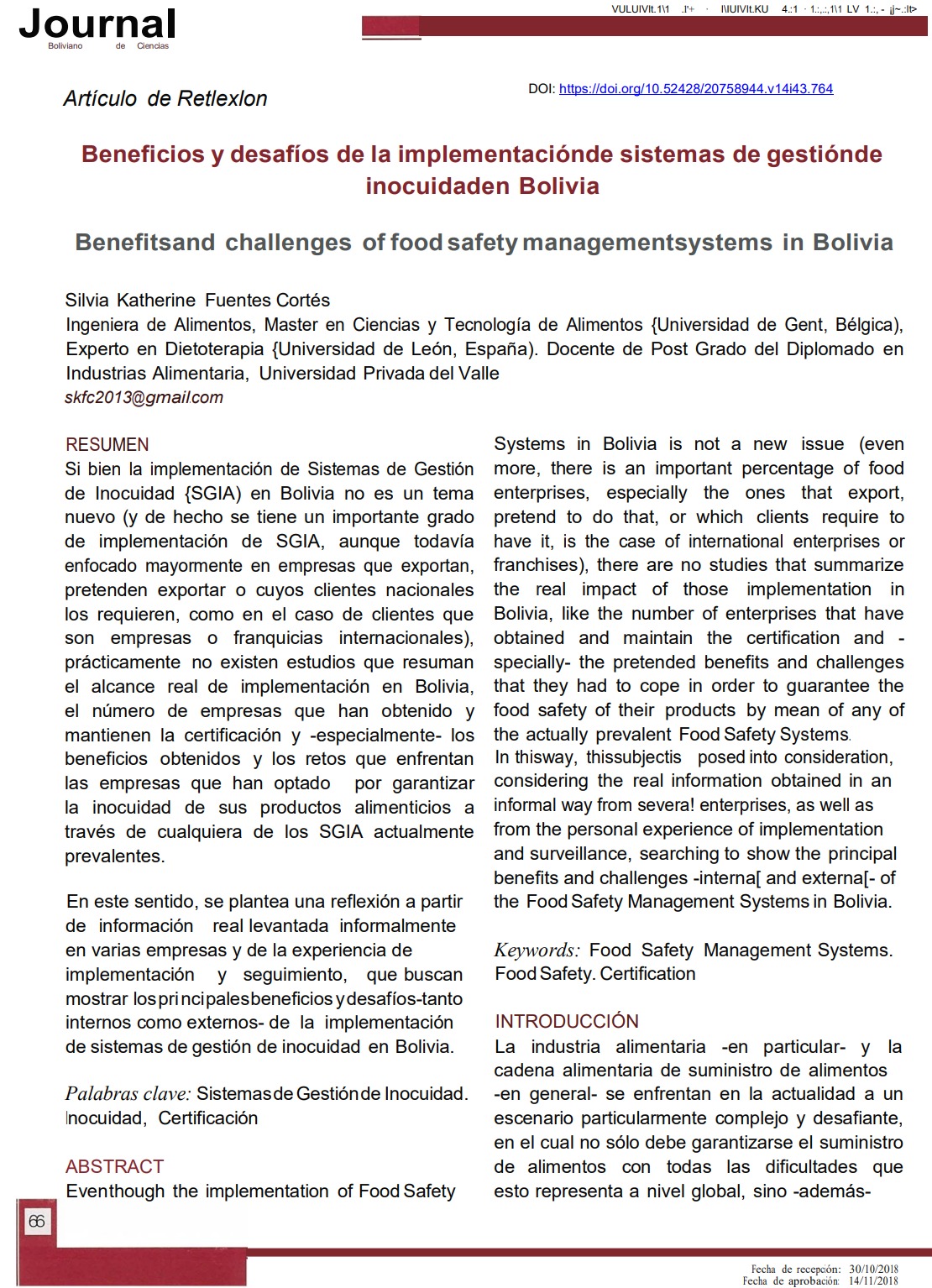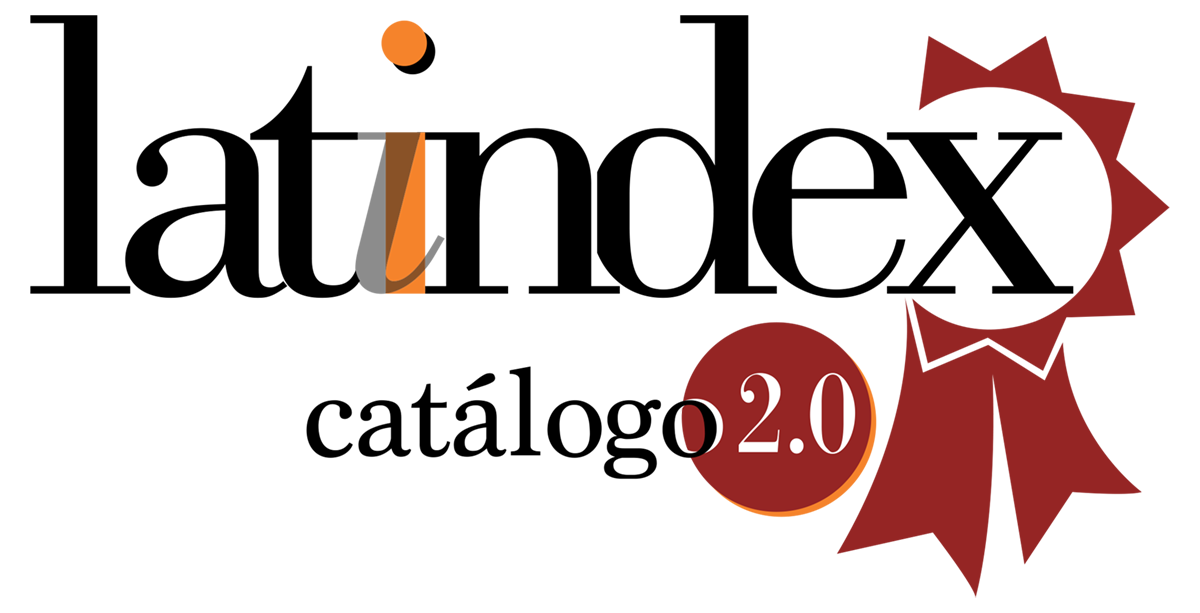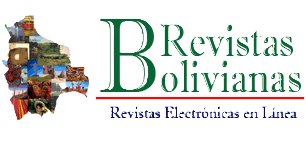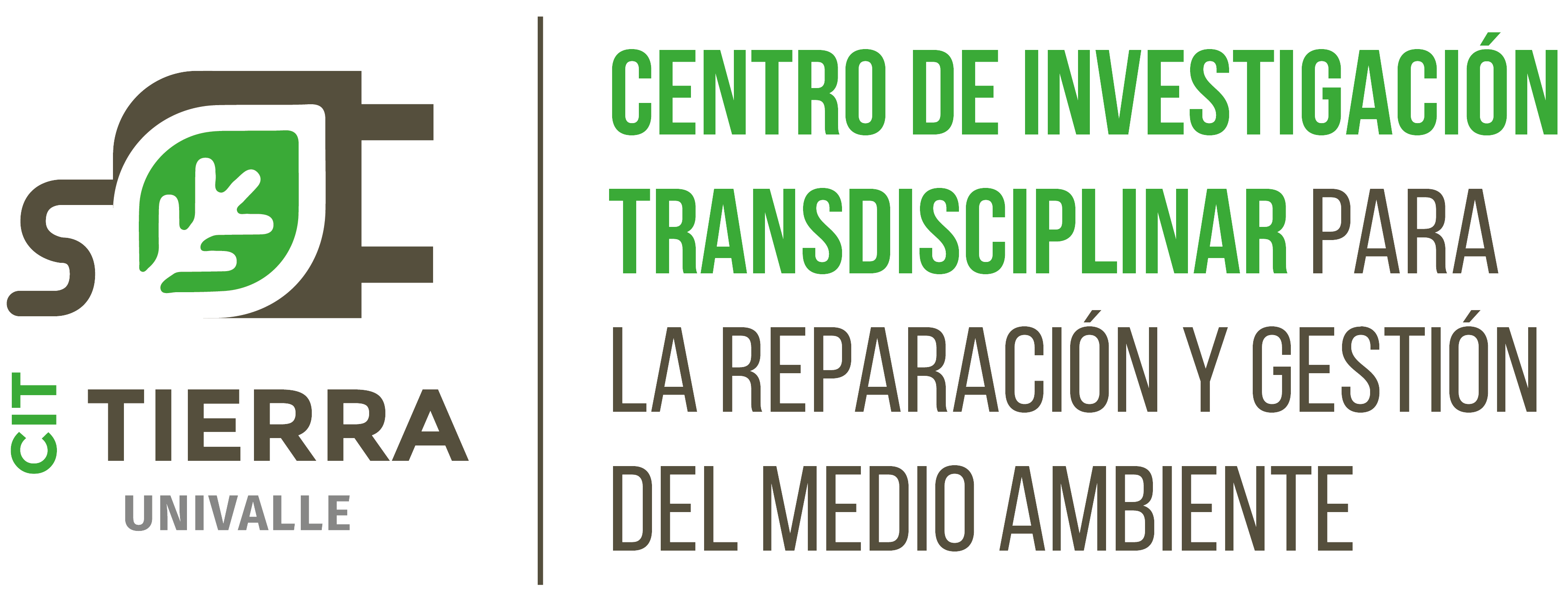Benefits and Challenges of Food Safety Management Systems in Bolivia
DOI:
https://doi.org/10.52428/20758944.v14i43.764Keywords:
Food Safety Management Systems, Food Safety, CertificationAbstract
Even though the implementation of Food Safety Systems in Bolivia is not a new issue (even more, there is an important percentage of food enterprises, especially the ones that export, pretend to do that, or which clients require to have it, is the case of international enterprises or franchises), there are no studies that summarize the real impact of those implementation in Bolivia, like the number of enterprises that have obtained and maintain the certification and, specially, the pretended benefits and challenges that they had to cope in order to guarantee the food safety of their products by mean of any of the actually prevalent Food Safety Systems. In this way, this subjectis posed into consideration, considering the real information obtained in an informal way from severa! enterprises, as well as from the personal experience of implementation and surveillance, searching to show the principal benefits and challenges, internal and external, of the Food Safety Management Systems in Bolivia.
Downloads
References
Fraiz, J., Alvarez J. y Del Río M. (2012). Motivaciones para Implementar un Sistema de Gestión de Calidad, Análisis Empírico En El Sector Turístico Español. Brasil: Cultur, Revista de Cultura y Turismo.
Pelicer, C. y Toledo, J. (2017) Safety programs far the leed industry: characterization and perceived benefits of the implementation. Sao Paulo, Brasil: Journal Gesta o e Producáo. Vol.24 no.4.
Maldonado, E., Henson, S., Caswell, J., Leos, L., Martinez, P., Aranda, G., et al. (2005). Cost-benefit analysis of HACCP implementation in the Mexican meat industry. Food Control. UK: University of Reading, Volume 16, lssue 4. https://doi.org/10.1016/j.foodcont.2004.03.017
Avendano D.; Paniagua J. y Rivera H. Modelo de Sistema de Gestión de Inocuidad Alimentaria basado en ISO 22000:2005 para las PYMES del rubro de restaurantes de El Salvador: El Salvador, 2013. Universidad

Downloads
Published
How to Cite
Issue
Section
License
Copyright (c) 2018 Silvia Katherine Fuentes Cortés

This work is licensed under a Creative Commons Attribution 4.0 International License.
Authors who publish with this journal agree to the following terms:
- Authors retain copyright and grant the journal right of first publication with the work simultaneously licensed under a Creative Commons Attribution License 4.0 that allows others to share the work with an acknowledgement of the work's authorship and initial publication in this journal.
- Authors are able to enter into separate, additional contractual arrangements for the non-exclusive distribution of the journal's published version of the work (e.g., post it to an institutional repository or publish it in a book), with an acknowledgement of its initial publication in this journal.
- Authors are permitted and encouraged to post their work online (e.g., in institutional repositories or on their website) prior to and during the submission process, as it can lead to productive exchanges, as well as earlier and greater citation of published work.














